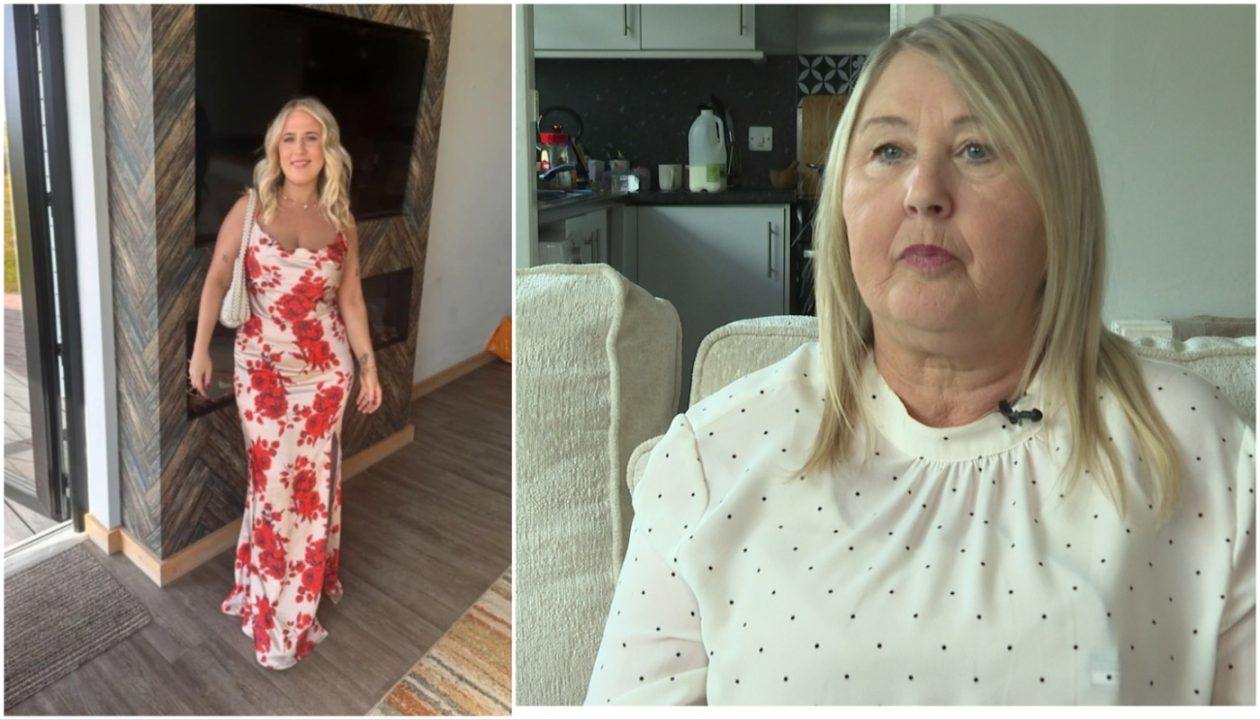Key Points
-
 Cheryl Reid died with bowel cancer just four months after being diagnosed with the disease at stage 4
Cheryl Reid died with bowel cancer just four months after being diagnosed with the disease at stage 4 -
 She had been back and fourth to doctors since 2023 with a range of symptoms including abdominal pains
She had been back and fourth to doctors since 2023 with a range of symptoms including abdominal pains -
 Cheryl’s family are now campaigning for greater awareness of bowel cancer symptoms in younger people
Cheryl’s family are now campaigning for greater awareness of bowel cancer symptoms in younger people -
 A petition calling for the national screening age to be lowered from 50 to 30 has gathered almost 40,000 signatures
A petition calling for the national screening age to be lowered from 50 to 30 has gathered almost 40,000 signatures -
 Bowel cancer is the fourth most common in the UK – and nine out of 10 people survive the disease if it’s found and treated early
Bowel cancer is the fourth most common in the UK – and nine out of 10 people survive the disease if it’s found and treated early -
 In Scotland, those aged between 50 and 74 are given an at-home screening test every two years
In Scotland, those aged between 50 and 74 are given an at-home screening test every two years
Margaret Horne has decorated her home with sunflowers – a tribute to her “kind and caring” daughter.
Cheryl Reid, 32, lost her life to bowel cancer in February, just four months after being diagnosed with the disease at stage 4 in October last year.
In the months since losing her daughter, Margaret has been desperate for answers about why Cheryl’s diagnosis came so late.
She had been back and fourth to doctors since 2023 with a range of symptoms including abdominal pains.
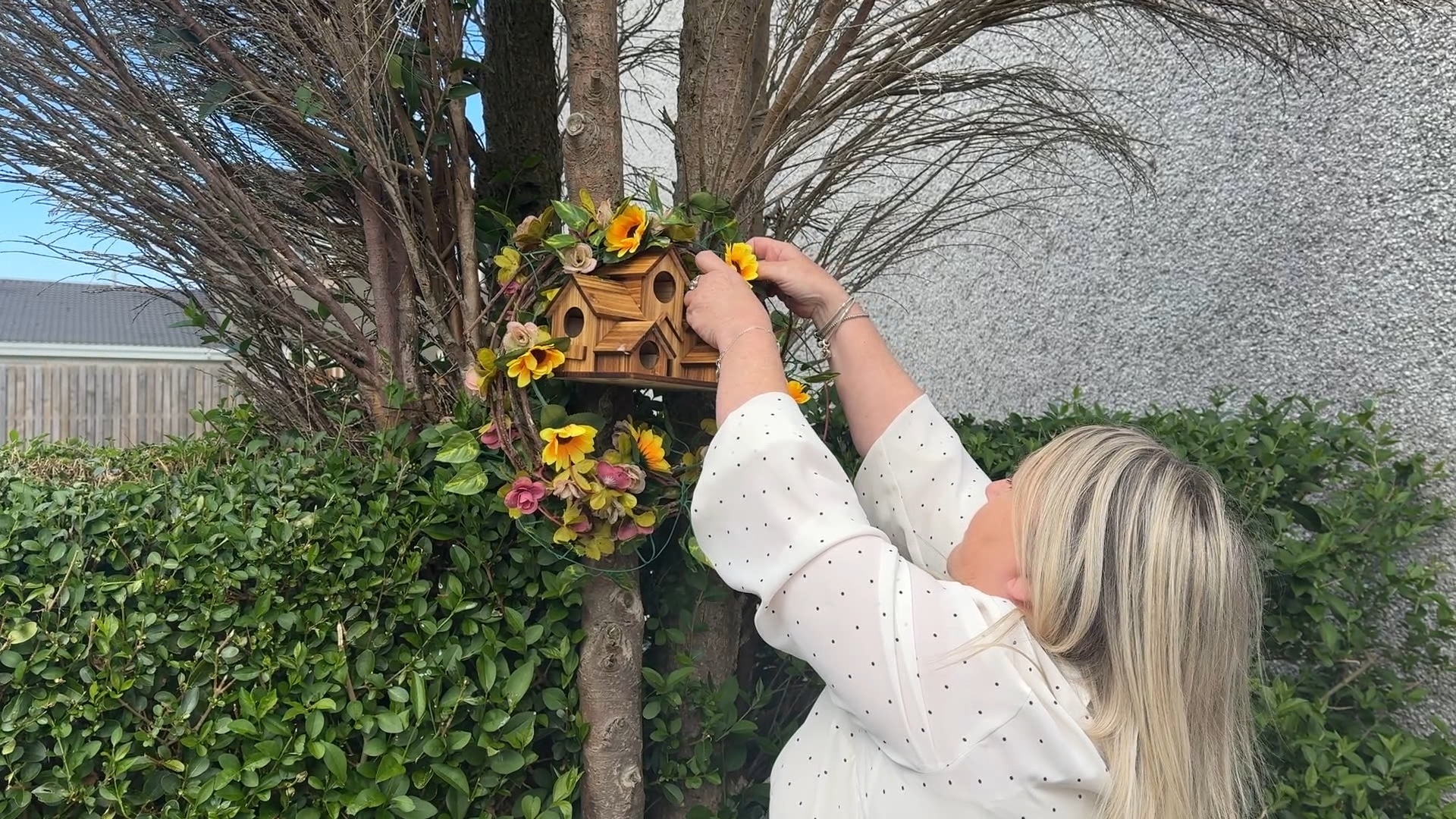 STV News
STV News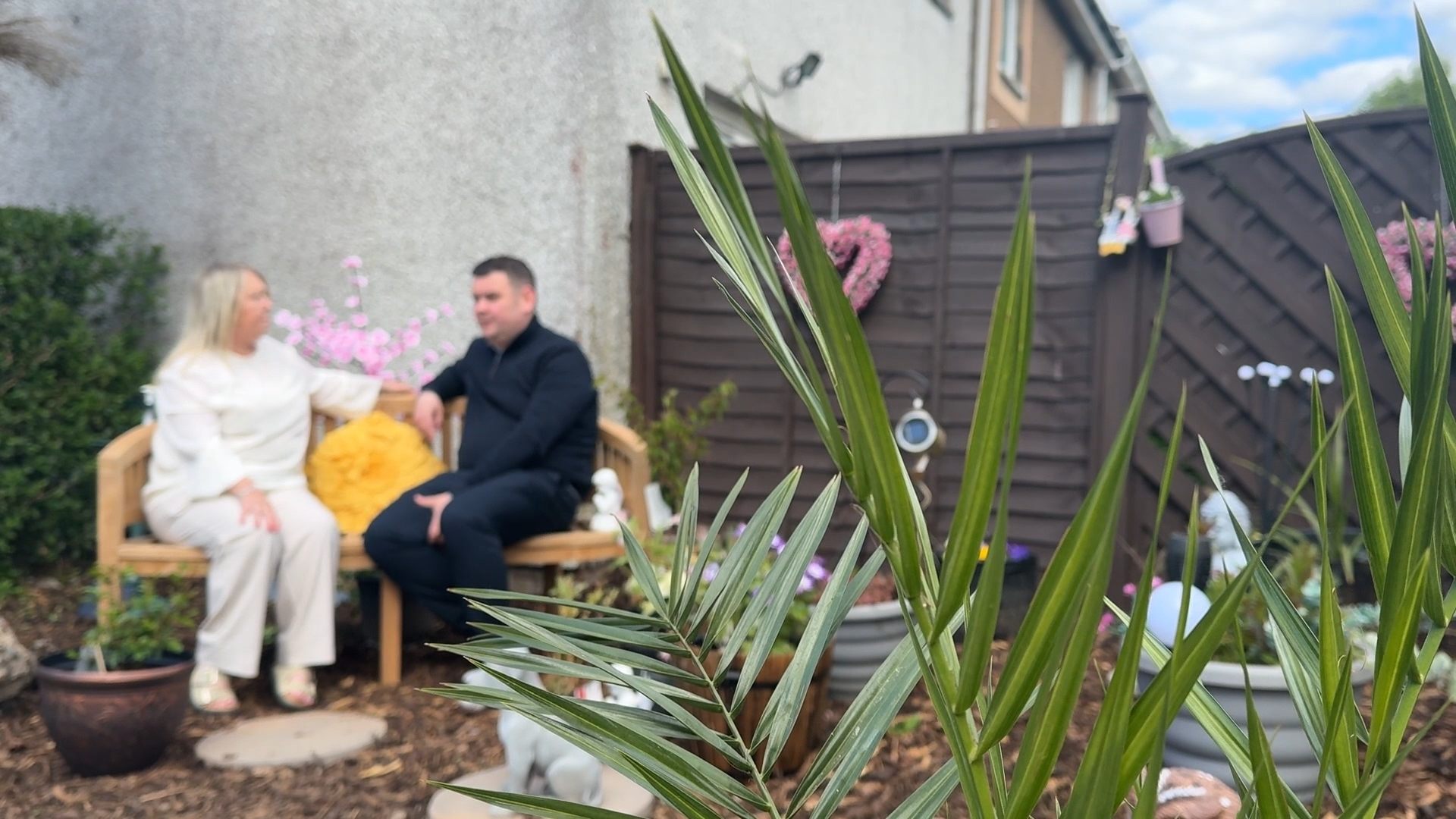 STV News
STV NewsAn ultrasound in January 2024 showed no sign of gallstones and medics believed her symptoms could be related to gastritis.
In July 2024 she was referred to Glasgow’s Royal Infirmary and recommended for a CT Scan.
But rather than carry out the scan doctors instead referred her for a second out patient ultrasound.
It wasn’t until October the same year when she returned to A&E that her upper abdominal pains were assessed as 10/10 in severity and further tests were taken.
Signs of inflammation were detected in her blood samples and a provisional diagnosis of cholecystitis (inflammation of the gallbladder) was given.
She was then referred for a CT scan the next day which finally revealed Cheryl had stage four bowel cancer – something the health board have described in a response to the family as “quite unexpected”.
“She just went hysterical,” recalled Margaret, from Kirkintilloch in East Dunbartonshire. “I went hysterical. We were just crying and crying.”
Cheryl was moved to the Beatson centre for chemotherapy treatment. The first round shrunk the tumours in her bowel but tumours in her liver had gotten bigger.
“When she got to the Beatson she got great care. But her oncologist said by the time she seen her, it was too far gone.”
Despite trying a second round of chemotherapy, Cheryl died on February 4 this year.
Early diagnosis
“We’re never going to know,” said Margaret. “But they might have been able to save her. We’re angry because if this was caught in July, she might still be here.”
The family are now campaigning for greater awareness of bowel cancer symptoms in younger people.
A petition, which has now gathered almost 40,000 signatures, is calling for the national screening age to be lowered from 50 to 30 and to ensure that “patients presenting with one or more recognised symptoms of bowel cancer are thoroughly investigated”.
“The last thought on anyone’s mind was that it was cancer,” said Liam Reid, Cheryl’s cousin. “But you always think that they would have checked for that.”
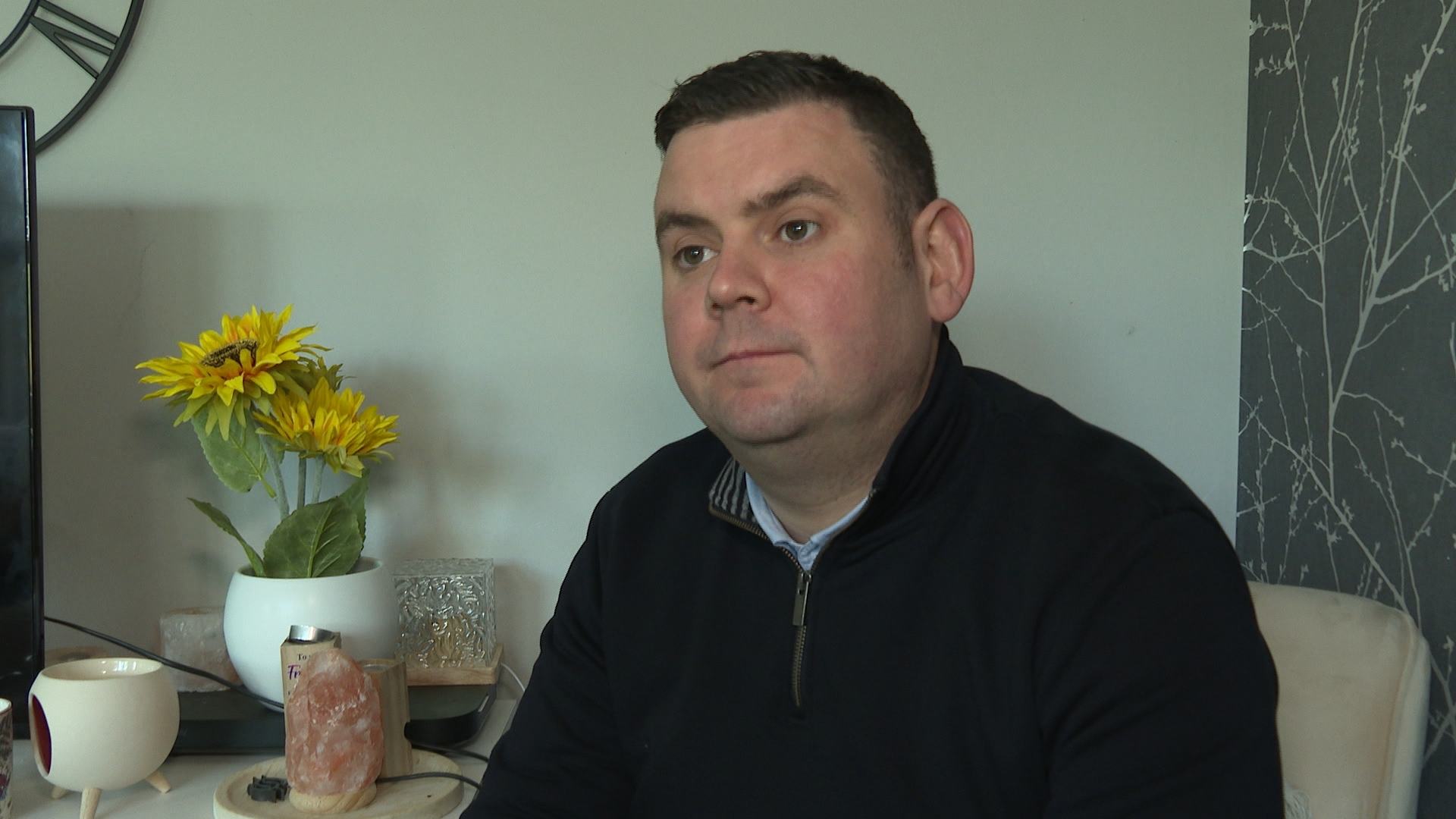 STV News
STV NewsLiam also worked with Cheryl and knew how debilitating her symptoms had become in the months before her diagnosis.
He said: “A lot of how she was feeling she would share with me in the morning. I remember saying Cheryl this just doesn’t seem normal.”
A rise in young cases
The family hope the campaign will start a conversation about bowel cancer cases among those under 50.
Bowel cancer is the fourth most common in the UK – and nine out of 10 people survive the disease if it’s found and treated early.
In Scotland, those aged between 50 and 74 are given an at-home screening test every two years.
However, according to Cancer Research UK, one in every 20 cases in the UK happen in people under 50 and studies show this is rising.
Consultant colorectal and general surgeon Dr David Chong, is a screening colonoscopist on the national bowel screening programme.
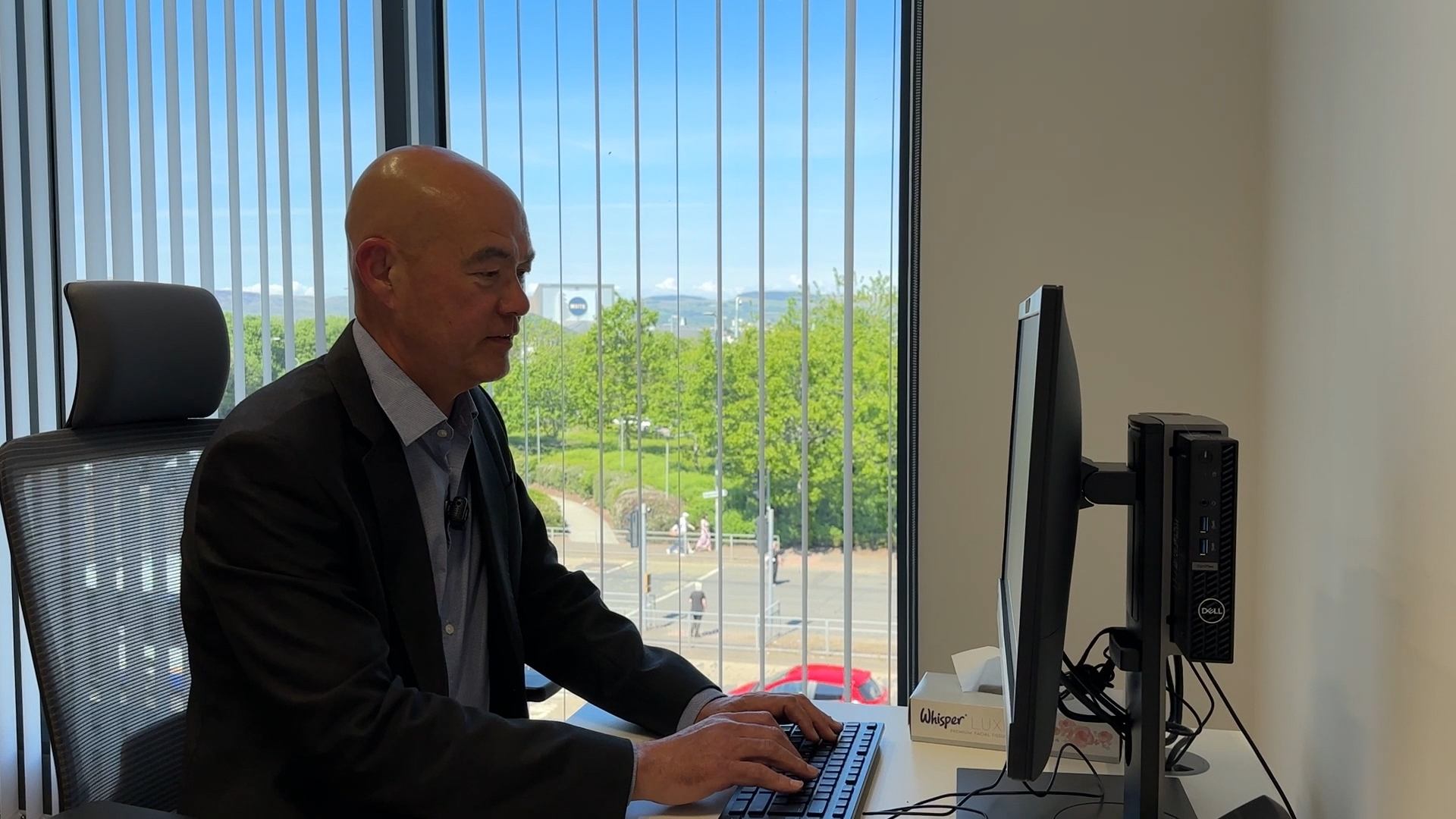 STV News
STV NewsHe told STV News: “The biggest misconception is that, number one, it doesn’t happen in young people.
“It does and we’re seeing that more and more. And studies recently from The Lancet show very clearly that it does happen in younger people and it’s getting more common.
“This is the message not just for patients but for healthcare professionals. This is a change that we’re seeing, the message is quite early on and in its infancy – the message hasn’t been fairly widespread yet.
“We’re all seeing younger patients present in ways that you wouldn’t expect.”
Dr Chong said reasons for this rise are something “we don’t fully know, but it’s multi factorial” and that the main areas of research “are focused on the gut microbiome.”
Through Mid Dunbartonshire MP Susan Murray, the family submitted a complaint to NHS Greater Glasgow and Clyde about Cheryl’s care.
In response to questions over her misdiagnosis, the health board apologised if Cheryl’s “presentation and assessment in July 2024 may have contributed to a delayed diagnosis of a stage 4 colorectal cancer, which is clearly devastating.”
However, the response also states the position that the plan for a repeat outpatient ultrasound in July 2024 “was a reasonable one”.
Morag Gardner, NHS Greater Glasgow and Clyde’s deputy nurse director for Acute Services, told STV News: “For reasons of patient confidentiality, we cannot comment on individual cases, but we send our deepest condolences to the family of Cheryl Reid for their loss.
“We have reviewed this case in great detail, and we can confirm that we received a complaint about this patient’s care, which we investigated thoroughly and responded to in January.
“Our services follow national guidelines, and we fully support Scottish Government initiatives about bowel cancer and screenings.
“We would encourage Cheryl’s family to contact us to address their concerns and any misunderstandings.”
Public health minister Jenni Minto said: “My sympathies are with Ms Horne and the rest of her family for the terrible loss they have suffered.
“The Scottish Government, along with the other UK nations, relies on advice about screening programmes from the UK National Screening Committee, an independent expert advisory group.
“The committee does not currently recommend bowel screening for those under 50. If that advice changes, then we would of course look at it again.”
Follow STV News on WhatsApp
Scan the QR code on your mobile device for all the latest news from around the country


